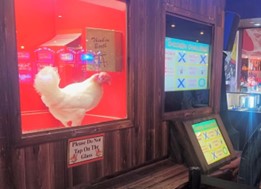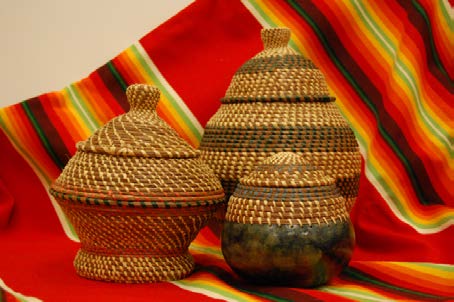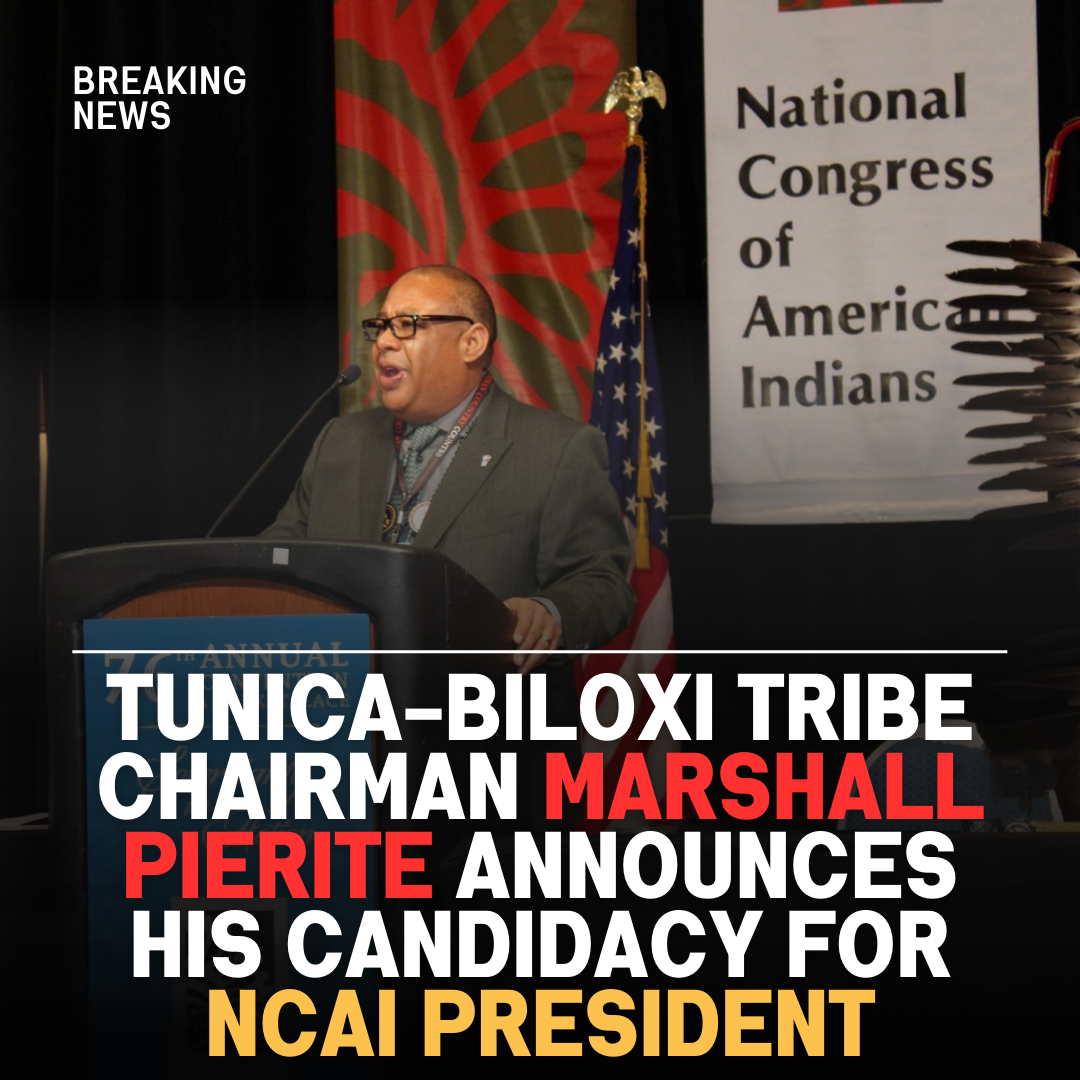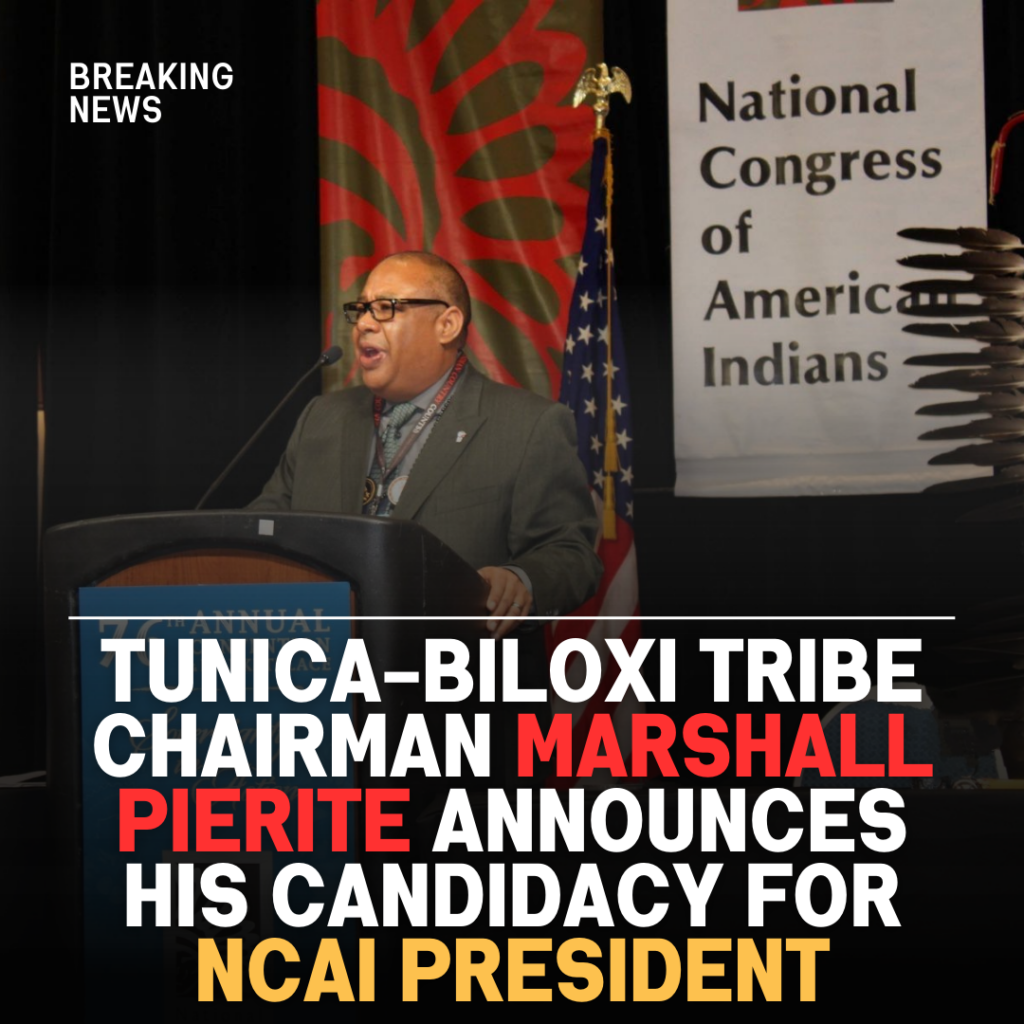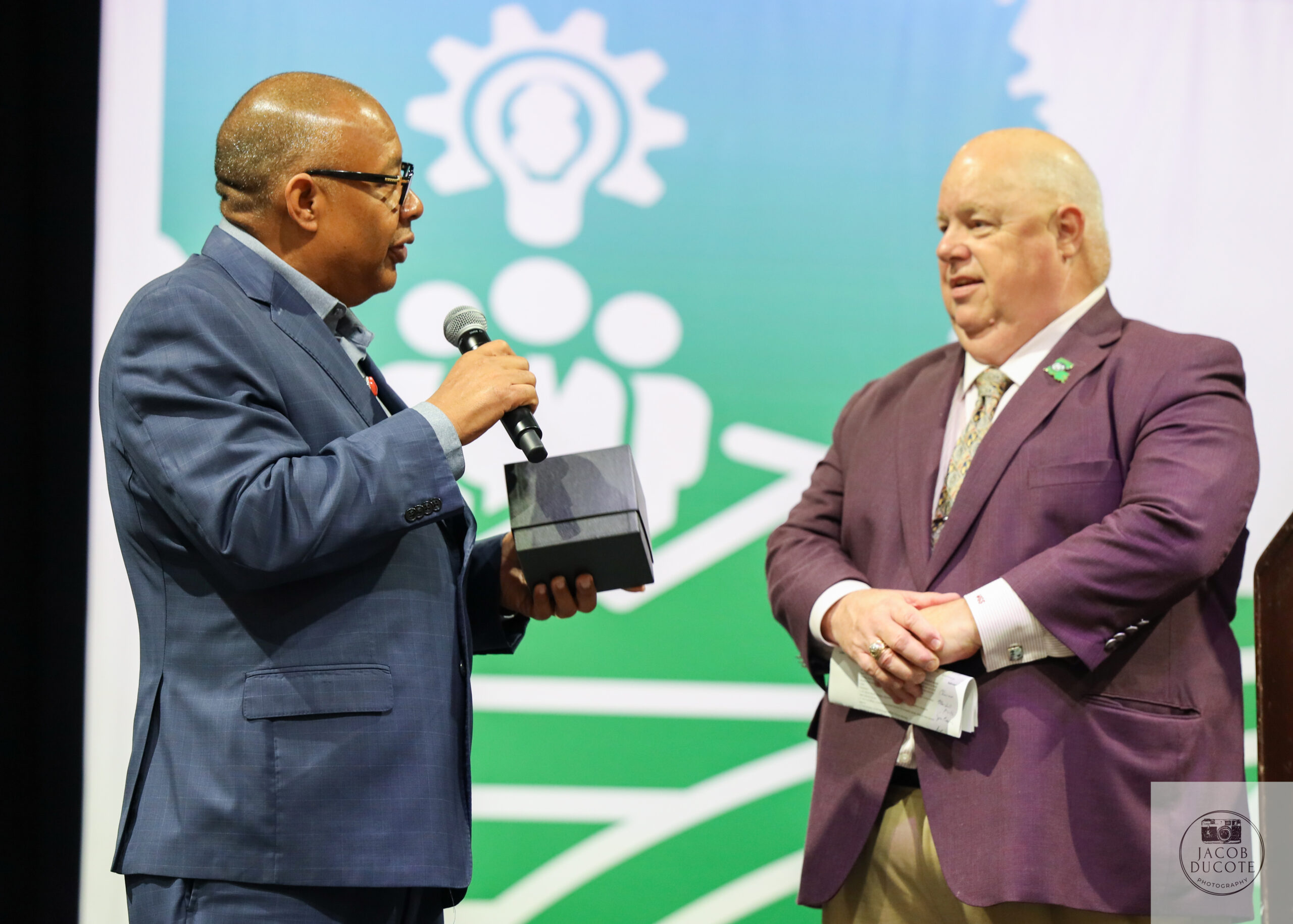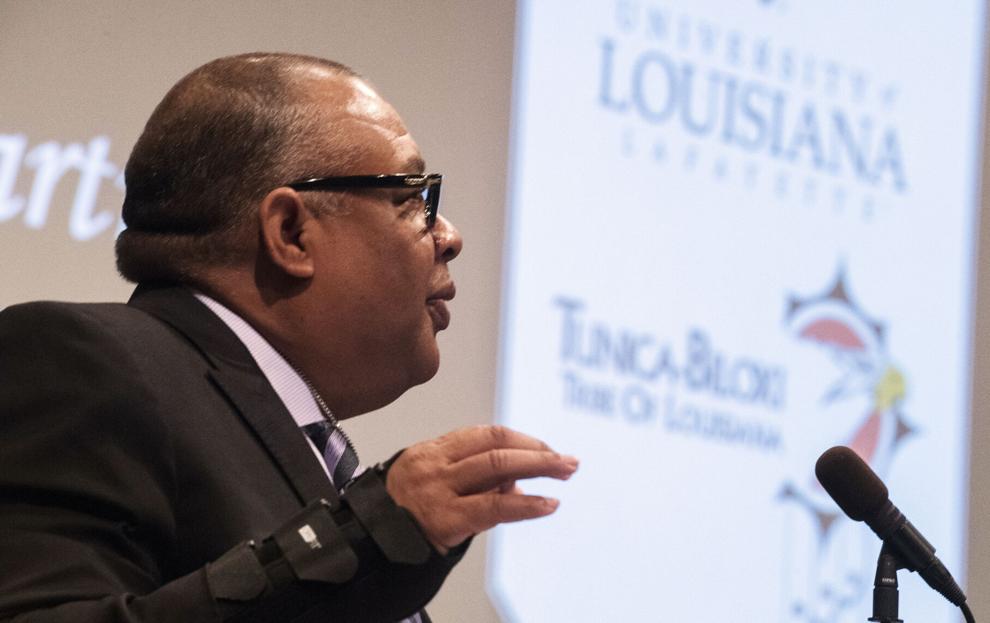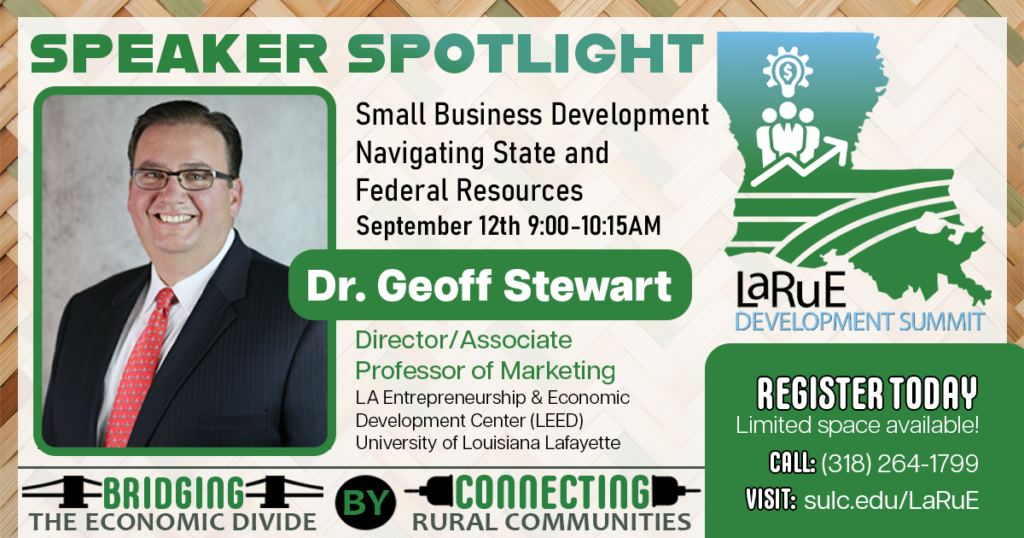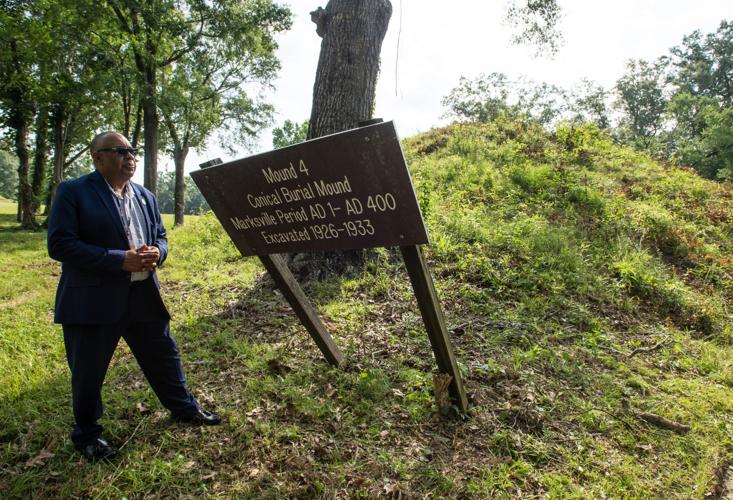Photo Credit: STAFF PHOTO BY BRAD BOWIE The Advocate
Originally published on NOLA.com
If you pass the casino in Marksville going north on La. 1, turn right by the Dollar General and then drive through a working-class neighborhood toward the oxbow lake known as Old River, you’ll come to an old metal single-bar gate.
Behind that nondescript gate, far off any beaten path, is one of Louisiana’s major historic treasures: a Native American mound complex that dates back two millennia and once may have served as an important ceremonial site.
Since the middle of the last decade, however, the site has been closed to the public, the victim of low visitor numbers, crumbling facilities and dwindling state funding. Its lone building has fallen into disrepair, with shattered display cases, weeds growing in the courtyard and debris strewn about.
Marshall Pierite wants to change that.
Pierite is the chairman of the 1,500-member Tunica-Biloxi Tribe, which is headquartered just a couple miles away and owns the nearby Paragon Casino Resort and reservation.
In 2022, the Tribe acquired the rights to run the mound complex in an agreement with the city of Marksville, which had obtained the land from the state.
For Pierite, it was an important day for the site’s future because of its past. Today’s Tunica-Biloxi is a successor tribe to four earlier tribes — the Tunica, Biloxi, Ofo and Avoyel — that allied with each other in the 18th century and combined in the 19th before eventually gaining federal recognition in 1981. The tribe has a long history in northern Mississippi and central Louisiana.
“We made a promise to ourselves that if we do reacquire the property that we are going to maintain it and build it up,” Pierite said during a recent tour. “I hear the voices of the blood coming out of the ground.”
A long history
The Marksville mounds are less well known than Louisiana sites like Poverty Point, a sprawling complex in northeast Louisiana that has been designated a UNESCO World Heritage Site; or those on the bustling campus of LSU, which some have argued may be the oldest man-made structures in the Americas.
Marksville’s 42-acre site includes one semicircular embankment and six mounds along what is known as Old River which during the time they were built around 2,000 years ago would have been the path of the Mississippi River. One of the mounds, known as Mound 4, contained human remains that were mostly excavated a century ago.
The mounds are commonly dated to what is known as the Hopewell culture, which began around 50 B.C. and lasted about 450 years.
Hopewell sites are distinguished by the construction of elaborate earthworks — often circular, like what is present in Marksville — and by certain pottery designs and burial styles, according to Louisiana State Archaeologist Chip McGimsey, an expert on archaic Native American sites.
The origins of the Hopewell lie far to the north of Marksville, however, probably in the Ohio River Valley, McGimsey said. Some Marksville pottery decorations are virtually indistinguishable from others found as far north as Illinois, he said.
“This is why Marksville is important,” McGimsey said. “It really shows for the first time how connected North America was in the past. It wasn’t little communities isolated from each other.”
The Hopewell people were exchanging raw materials across great distances, traveling along the riverways, he said. They also shared ideas about the cosmos and humans’ role in it.
From one of the six mounds, known as Mound 5, sightlines to other mounds marked the rise and set of the sun, moon and other stars, research has shown.
“In Native American history, this is the first time you see a cultural expression that spans such a large area,” McGimsey said. At least one of the mounds contained human remains.
About 400 or so years after it was constructed, the site was abandoned for reasons that remain unclear.
“Whatever it was that made Hopewell popular, it faded from history and you start to see local traditions spring up again,” McGimsey said.
A personal mission
More than 1,600 years after the site was abandoned, Pierite now sees great potential for its future.
“The plans for the building are to restore it as well as transition some of the educational cultural programs over there,” Pierite said. He also envisions returning the site to its observatory roots by building a “state-of-the-art planetarium.”
It won’t be cheap — Pierite said the costs could run to $5 million, which he hopes to cover through tribal funding and grants.
Pierite’s effort is a nod to his own past.
“My first summer job was actually working here, cutting grass and keeping up the building,” he recalled. Then, in the mid-1970s, the tribe hadn’t yet obtained federal recognition, which didn’t come until 1981. But the site was “well-maintained” Pierite said.
The Spanish-style white-brick museum building used to house exhibits about Native American culture, art and religion. Today, however, it is in a poor state. Shattered glass from the displays is on the floor. Some cases are tipped over. The courtyard is overgrown with weeds; creepers reach up the outside walls.
“It was very sad to watch over the years to see the place decline,” Pierite said. “We knew from Day One it was part of our ancestral homelands.”
The new attractions, Pierite hopes, will generate new interest in the site engage nontribal community members with the tribe and its history and educate all Louisianians about Native American and Tunica-Biloxi history in Louisiana.
“Everything we do from back into the present day is as inclusive of the nonnative community,” He said. “It’s our goal and spiritual obligation to teach our children to be great community partners.”
